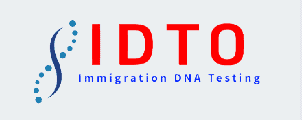Paternity Test After Birth – How Soon?
One of the most frequently asked questions we receive regarding paternity testing is, How soon can I perform a DNA Paternity Test after my child is born? Most people believe that you have to wait months for a child to age in order to perform a paternity test.
Well, the truth of the matter is, that you can perform a paternity test a day or two after the birth of a child. Below is a list of things you will have to do to successfully perform a paternity test.
1. Decide where the DNA sample collection will take place. Will you perform the DNA collection at the hospital, at your home, or Do you want to travel to a DNA sample collection site to have your samples collected?
2. If you decide to have the child’s samples collected at the hospital. This is what you will need to do. First, ask the head nurse what the protocol is to allow a DNA sample collector to collect the child’s DNA sample.
Second, contact IDTO at 877-680-5800 to inquire about mobile DNA testing services in your services.
3. If you decide to wait until the child comes home and you want an at-home DNA Paternity Test. Please contact our office at 877-680-5800 to inquire about our mobile DNA testing service coverage in your city.
Can you perform a paternity test after I sign a birth certificate?
Yes. A paternity test can be performed before or after the birth certificate has been signed.
Please note, The mother and alleged father do not sign a birth certificate at the hospital. What the parents sign is an Acknowledgement of Paternity Form. Once the form is completed, the form will be sent to Vital Records and the information will be placed on the child’s birth certificate. This process may take several weeks.
Depending on your circumstance you may want to perform a paternity test before signing the Acknowledgement of Paternity (AOP) Form. It should be noted that an AOP form is a legally binding document. Therefore, signing this document if are an alleged father may legally bind you to responsibilities for a child that you may not be biologically related to.
Can breast milk affect a DNA test?
Can breast milk affect a DNA test result? Yes. Technically breast milk may add to the DNA profile of the mother. Breast milk is very healthy for the child for many reasons as it contains many helpful factors to protect the baby from infections, disease, etc. There are also cells from the mother in the milk and when you swab the child you will pick up some of those cells during the DNA testing process.
When it comes to a newborn child’s DNA sample being collected. We recommend to our clients who are breastfeeding their child to breastfeed a minimum of an hour and a half before the child’s DNA sample is to be collected. It is important to make sure to rinse the child’s mouth out before the sample collection with water.
Please note, that breast milk will not affect a blood DNA sample collection. Buccal swab collection is the only method that may run the risk of being affected when collecting a baby’s sample.
